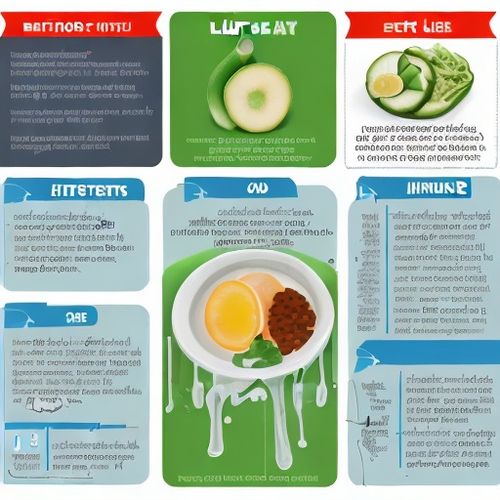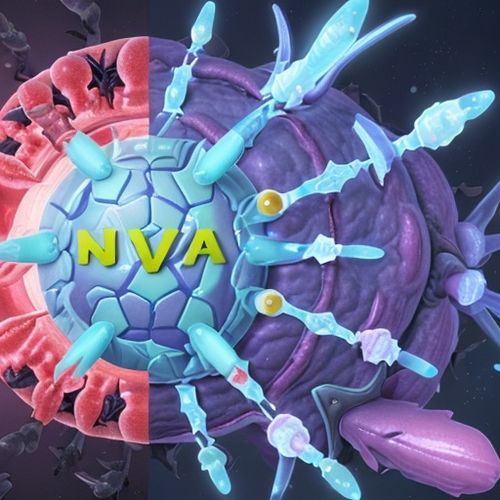For those following plant-based diets, ensuring adequate vitamin B12 intake remains one of the most critical nutritional considerations. This essential nutrient plays fundamental roles in nerve function, red blood cell formation, and DNA synthesis, yet it's naturally absent from plant foods. The vegetarian community continues to debate the best approaches for maintaining optimal B12 status while staying true to dietary principles.
The unique challenge with vitamin B12 lies in its microbial origins. Unlike most vitamins that plants can synthesize or absorb from soil, cobalamin (the scientific name for B12) is produced exclusively by certain bacteria. In nature, animals obtain it either by consuming contaminated plant material or through their own gut bacteria. Modern sanitation practices have eliminated most natural B12 contamination of plant foods, leaving vegetarians with few dietary sources beyond fortified products or supplements.
Understanding B12 deficiency requires recognizing its insidious progression. The body maintains substantial stores in the liver, often lasting several years before depletion causes noticeable symptoms. This creates a dangerous false sense of security - many vegetarians assume they're meeting requirements until neurological symptoms emerge. Tingling extremities, cognitive difficulties, or unexplained fatigue frequently manifest before blood tests show abnormal results.
Diagnosing deficiency presents its own complexities. Standard blood tests measuring total B12 levels often fail to detect early depletion. More sensitive markers like homocysteine or methylmalonic acid provide better indication of functional deficiency, yet these specialized tests aren't routinely ordered. Many healthcare providers lack awareness about vegetarian nutritional needs, potentially delaying diagnosis until significant damage occurs.
Supplementation strategies vary in their effectiveness. Cyanocobalamin, the most common supplemental form, offers stability and proven efficacy but requires conversion to active forms in the body. Methylcobalamin and adenosylcobalamin represent bioactive alternatives that bypass this conversion step, though their long-term superiority remains debated. Sublingual tablets and sprays gained popularity for presumed better absorption, yet research shows they offer little advantage over conventional oral supplements for most people.
The absorption mechanism presents another layer of complexity. Intrinsic factor, a stomach-produced glycoprotein, binds dietary B12 for ileum absorption. This capacity-limited system absorbs only about 1-2 mcg per meal from food sources. Interestingly, supplements taken between meals demonstrate better absorption through passive diffusion, bypassing the intrinsic factor bottleneck. This explains why small daily doses often prove more effective than occasional large doses.
Fortified foods provide a convenient alternative for those resistant to supplements. Nutritional yeast, plant milks, meat analogs, and breakfast cereals frequently contain added B12. However, reliance solely on fortified products requires diligent label reading and consistent consumption patterns. The variable fortification levels between products and brands creates challenges for maintaining steady intake.
Pregnancy and lactation elevate B12 requirements dramatically. Vegetarian mothers face increased risk of passing deficiency to infants through depleted stores in breastmilk. Pediatric cases of B12 deficiency often present with severe neurological consequences, making proactive supplementation crucial during these life stages. Many experts recommend higher supplemental doses for pregnant and breastfeeding vegetarians as a precautionary measure.
Aging further complicates B12 status regardless of diet. Declining stomach acid production impairs protein-bound B12 liberation from food, affecting about 10-30% of older adults. While vegetarians avoid animal-derived protein-bound B12, age-related malabsorption can still impact supplemental forms. Regular monitoring becomes increasingly important for older vegetarians, with some requiring injections to bypass absorption issues.
Ethical considerations sometimes influence supplement choices among vegetarians. Some individuals express concerns about supplements containing animal-derived ingredients in their manufacturing process, such as gelatin capsules. Fortunately, numerous vegan-certified options now exist using plant-based capsules and non-animal sourced B12 cultures. These products allow strict vegetarians to maintain both ethical standards and nutritional adequacy.
The supplement industry's marketing claims often confuse consumers. Exaggerated potency claims, unnecessary combination products, and pseudoscientific absorption technologies flood the market. Reputable organizations like the Vegan Society and Vegetarian Nutrition Dietetic Practice Group provide evidence-based guidelines cutting through this noise. Their consensus recommends 25-100 mcg daily or 1000 mcg twice weekly as adequate for most adults.
Long-term vegetarians who neglected B12 supplementation sometimes face difficult decisions when deficiency develops. The ethical dilemma of considering B12 injections derived from animal sources versus continuing with oral supplements that may not correct deficiency can cause significant distress. Open discussions with healthcare providers about individual circumstances and available options help navigate these challenging situations.
Cultural variations in vegetarian diets influence B12 status differently. Traditional Asian vegetarian diets often include fermented foods mistakenly believed to contain B12, while Western vegetarians more commonly use fortified products. These cultural differences highlight the need for tailored nutrition education addressing specific dietary patterns within diverse vegetarian communities.
Emerging research continues to refine our understanding of B12 metabolism. Investigations into gut microbiome's potential role in small-scale B12 production, while not sufficient to meet needs, may eventually contribute to personalized supplementation approaches. Current studies also explore optimal dosing schedules and long-term outcomes for various vegetarian populations.
The environmental impact of B12 production raises additional considerations. While supplement manufacturing requires resources, it represents a negligible fraction compared to the environmental costs of animal agriculture. This perspective helps ethically-motivated vegetarians reconcile supplement use with their environmental values.
Practical challenges persist in maintaining consistent supplementation. Forgetfulness, travel disruptions, and changing product availability all interfere with perfect adherence. Developing simple routines like keeping supplements with toothbrushes or using weekly pill organizers significantly improves long-term compliance.
Healthcare provider education remains an ongoing need. Many medical professionals still recommend vegetarians simply consume dairy or eggs for B12 without understanding vegan ethics or lactose intolerance issues. Improved nutrition training could bridge this gap, ensuring vegetarians receive appropriate guidance aligned with their values and physiology.
Ultimately, B12 supplementation represents a small but non-negotiable aspect of vegetarian nutrition. The modest inconvenience of taking regular supplements pales in comparison to the ethical and health benefits of plant-based diets. With proper attention to this single nutrient, vegetarians can maintain excellent health while upholding their dietary principles for decades.
As research continues, supplementation protocols may become more refined. What remains unchanged is the critical importance of conscientious B12 intake for anyone excluding animal products long-term. This simple preventive measure protects against potentially severe consequences while allowing full enjoyment of vegetarianism's many benefits.

By Sarah Davis/May 19, 2025

By Natalie Campbell/May 19, 2025

By George Bailey/May 19, 2025

By Lily Simpson/May 19, 2025

By David Anderson/May 19, 2025

By Olivia Reed/May 19, 2025

By Amanda Phillips/May 19, 2025

By Sophia Lewis/May 19, 2025

By Olivia Reed/May 19, 2025

By Emily Johnson/May 19, 2025

By John Smith/May 18, 2025

By Eric Ward/May 18, 2025

By Jessica Lee/May 18, 2025

By Jessica Lee/May 18, 2025

By Sophia Lewis/May 18, 2025

By Rebecca Stewart/May 18, 2025

By Emily Johnson/May 18, 2025

By Rebecca Stewart/May 18, 2025

By Megan Clark/May 18, 2025

By Megan Clark/May 18, 2025